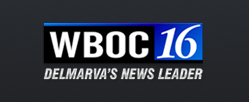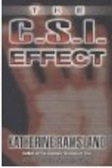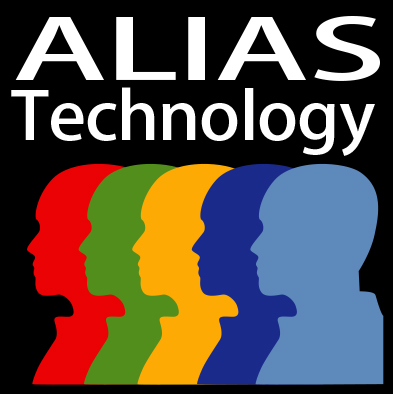Do you really want your case discussed in public before it has gone to trial, while the trial is ongoing, or before all the appeals have been exhausted? We don’t think so.
Do you really want your investigation discussed on social media or university press releases or news reports? We don’t think so.
Do you really want your expert’s report posted on the web? We don’t think so.
Your Data, Your Case, Our Policy
Our policy is very straightforward.
First, we simply do not respond to press requests on any open case. By “open case,” we mean any case that is in the investigation stage, the pre-trial stage, the adjudication stage, or the appeal stage.
Second, we never contact the press regarding any of our cases. When other forensic linguists contact us to be part of a story about a high profile case or any case we have any involvement with, we simply refuse to participate.
Third, we present case studies in some of our talks only after the case is closed. By “closed,” we mean any case that has been adjudicated with a final verdict, is not under appeal in any way that relates to linguistic evidence, or whose investigation has ceased.
Fourth, we discuss methodology and general principles of forensic science, including current problems in forensic linguistics, in our scientific articles, law review articles and with the press. We are willing to discuss ideas, not specific cases.
Frankly, we think our policy is simply the ethical path in forensic science. We are stunned that so many “forensic linguistic experts,” whether through ignorance or narcissism, are more concerned with fame, attention and publicity than the potential harm to a case or investigation caused by publicity.
Since we do not seek out publicity and refuse to talk about open cases, ALIAS Technology LLC may be less well-known than other consulting services. We don’t mind. When you find us, we both know that you are serious about the legal and ethical responsibilities of police work, personnel decisions, security investigations and lawyering. Thank you!
Media Attention
We don’t provide a lot of flash. We don’t manufacture cases or controversies so we can “report our results” to Internet “journalists.” We don’t work for “journalists” who are simply trying to manufacture a controversy or conspiracy, without really caring about the state of forensic science in the United States.
Ironically, even though ALIAS Technology has never sought the spotlight, our work has been noticed. Sometimes we are interviewed as the foil, the dissenting voice, and the voice of forensic standards. We are happy to play that role in the public discourse. In fact, Carole Chaski was the first person –in 1996– to speak out against junk science in forensic linguistics. Her discussion of junk science in forensic linguistics was a very unpopular stance at the time and is still unpopular in some quarters. Again, we don’t mind. The Washington Post, Pro Publica, National Academy of Sciences and other investigative agencies agree with Dr. Chaski that forensic science cannot afford to tolerate junk science.
We know we serve a higher purpose than popularity or academic groupthink. We speak out because we feel morally obligated to protect the justice system from those kinds of “forensic linguistic experts” who are not well-trained in linguistics and forensic science. We know that scientific research can simply be too difficult and time-consuming for some “experts” to pursue, but we also know that our justice system needs scientists to speak out when pseudo-science is being used in a case.
Sometimes our work is written about as an emerging science. It is especially exciting when a science writer or a legal reporter realizes what linguistics can offer and recognizes the value of our unique approach to forensic linguistics. Generally it takes someone with curiosity, logical thinking, and intellectual rigor to understand what we do. Again, thank you!
And sometimes our work has been portrayed in crime fiction. It’s fun, but it’s not the real thing.
Interviews and Such
Dr. Katherine Ramsland, a world-renown forensic psychologist, posted about forensic linguistics and the 2014 TALE Summer Workshop on her blog Shadow Boxing at Psychology Today.
 Carole Chaski was filmed for local CBS-affiliated television news about her work as a forensic linguist. Click on Carole Chaski, PhD WBOC for the video report discussing the New Jersey vs. Melanie McGuire case, known as the “suitcase murder.” Dr. Chaski rebutted the State’s expert witness, a well-known FBI agent who presented a “forensic stylistics” analysis. McGuire was acquitted of all charges related to the linguistic evidence.
Carole Chaski was filmed for local CBS-affiliated television news about her work as a forensic linguist. Click on Carole Chaski, PhD WBOC for the video report discussing the New Jersey vs. Melanie McGuire case, known as the “suitcase murder.” Dr. Chaski rebutted the State’s expert witness, a well-known FBI agent who presented a “forensic stylistics” analysis. McGuire was acquitted of all charges related to the linguistic evidence.
 Carole Chaski was invited to speak about forensic linguistics for the National Clearinghouse for Science, Technology and Law, the largest warehouse of forensic science information in the United States. Click here for the audio!
Carole Chaski was invited to speak about forensic linguistics for the National Clearinghouse for Science, Technology and Law, the largest warehouse of forensic science information in the United States. Click here for the audio!
![]() Carole Chaski was interviewed on Canadian radio to speak about “the linguistic fingerprint” and what makes author identification possible –maybe not what you might think! Click CBC Radio One Show About Linguistic Fingerprints to listen to the show –about 25 minutes– to hear about voice biometrics and forensic linguistics.
Carole Chaski was interviewed on Canadian radio to speak about “the linguistic fingerprint” and what makes author identification possible –maybe not what you might think! Click CBC Radio One Show About Linguistic Fingerprints to listen to the show –about 25 minutes– to hear about voice biometrics and forensic linguistics.
![]() Carole Chaski was filmed for the popular and groundbreaking show Forensic Files in the episode “Letter Perfect.” “Letter Perfect” was the first episode to feature forensic linguistics on Forensic Files. This episode shows how ALIAS was used to demonstrate that Joseph Mannino had authored phony suicide notes to cover up the murder of his roommate, Michael Hunter. Mr Mannino admitted on the witness that he authored the notes. The show has been regularly re-run since its premiere in 2003.
Carole Chaski was filmed for the popular and groundbreaking show Forensic Files in the episode “Letter Perfect.” “Letter Perfect” was the first episode to feature forensic linguistics on Forensic Files. This episode shows how ALIAS was used to demonstrate that Joseph Mannino had authored phony suicide notes to cover up the murder of his roommate, Michael Hunter. Mr Mannino admitted on the witness that he authored the notes. The show has been regularly re-run since its premiere in 2003.
 Dr Katherine Ramsland is one of the most prolific writers about forensic sciences in the USA. She has published 47 books and approximately 1000 articles. Her 2006 book on The CSI Effect –and how the popularization of forensic science is changing the way we think of evidence–includes a discussion of Chaski’s work in forensic linguistics.
Dr Katherine Ramsland is one of the most prolific writers about forensic sciences in the USA. She has published 47 books and approximately 1000 articles. Her 2006 book on The CSI Effect –and how the popularization of forensic science is changing the way we think of evidence–includes a discussion of Chaski’s work in forensic linguistics.
MYSTERY NOVELS
Carole Chaski has been consulted by several mystery novelists about forensic linguistics.
Acclaimed mystery writer Roberta Isleib‘s “Advice Column” series includes a female forensic linguist as sidekick to her main character, a forensic psychologist, Deadly Advice. Carole Chaski provided advice, but none that was deadly. The book is a great read!

Winner of the Write Touch Readers’ Award and Goldren Quill Award, and finalist in the Bookseller’s Best Award and Colorado Award of Excellence, Deadly Intent by Kylie Brant features her character Macy Reid as a forensic linguist.
Carole Chaski has also advised the television show “Elementary” on forensic linguistics.
